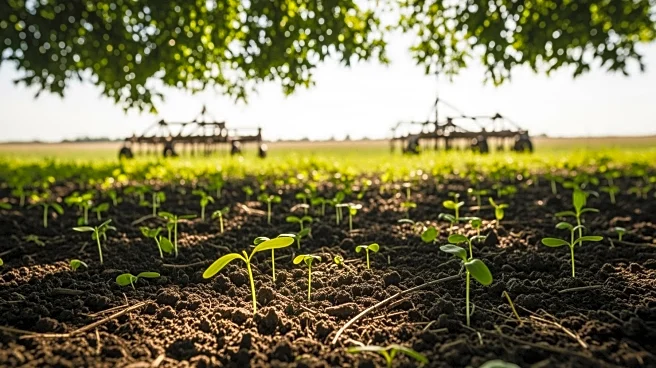What's Happening?
Sustainable investment firm Mirova has announced a significant investment of 26.4 million euros ($30 million) in Varaha, an India-based carbon project developer. This marks Mirova's first carbon removal investment in India and its largest nature-based
carbon commitment. The investment will support Varaha's 'Kheti' project, which aims to implement regenerative farming practices across 337,000 smallholder farms spanning 675,000 hectares in two Indian states. These practices include direct rice seeding and crop residue management, which are expected to generate verified carbon credits. These credits can be sold, providing revenue for both Varaha and the participating farmers. Varaha CEO Madhur Jain highlighted the importance of smallholder farms and soil carbon in agriculture, noting that agriculture contributes significantly to global emissions but also has the potential to remove carbon from the atmosphere.
Why It's Important?
The investment in Varaha underscores the growing interest in regenerative agriculture as a means to combat climate change and support rural communities. By focusing on smallholder farms, which feed a substantial portion of the population, the project aims to enhance food security while reducing carbon emissions. The generation of carbon credits offers a financial incentive for farmers to adopt sustainable practices, potentially transforming agricultural systems in the Asia-Pacific region. This initiative also highlights the role of private investment in driving systemic change in agriculture, which could lead to increased resilience among vulnerable rural communities.
What's Next?
Varaha's expansion of regenerative agriculture practices is expected to set a new standard for soil carbon removals. The company hopes that other investors will follow suit, further validating the sector as a viable investment opportunity. As Varaha continues to develop its carbon credit programs, including biochar and afforestation projects, it may attract additional partnerships and investments. The success of these initiatives could encourage more widespread adoption of regenerative practices, potentially influencing agricultural policies and practices globally.















